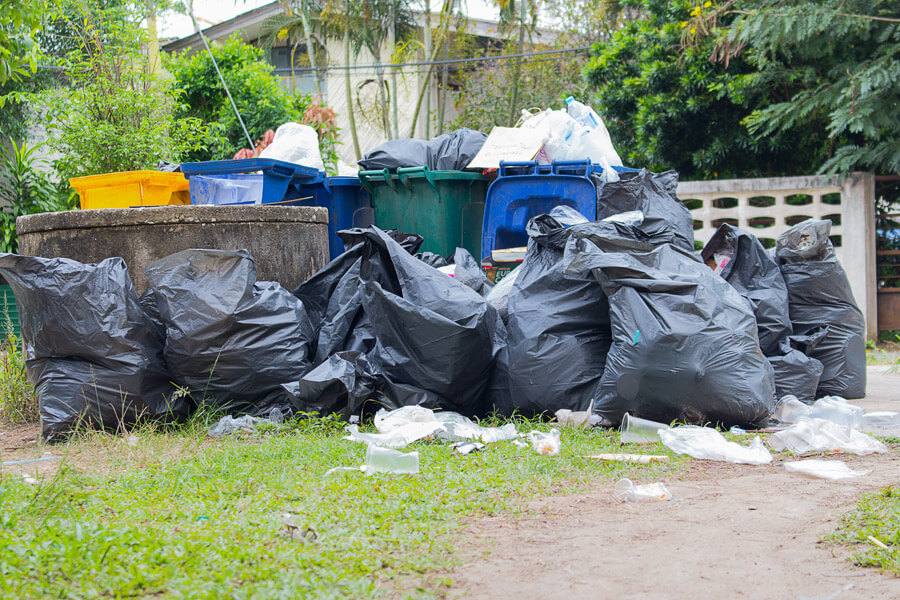
Hiring a waste clearance team should be simple: call, book, clear the junk, done. But people often get stung by hidden fees, dodgy operators, or poor service because they skip the details. Read these guidelines when you are booking Waste Clearance in Mitcham.
Not Checking If the Company Is Licensed
This one’s huge. Every legitimate waste clearance business in the UK needs to have a waste carrier licence issued by the Environment Agency. If they don’t, they’re operating illegally—and if your rubbish ends up fly-tipped, you could be held responsible and fined.
What to do instead:
Always request their waste carrier licence number and verify it on the Environment Agency’s website. Legit companies will display it on their website or van. If they hesitate or give excuses, walk away.
Falling for the Cheapest Quote
Everyone wants a deal, but going for the rock-bottom price can backfire fast. Some unlicensed operators quote low to win the job, then hike the price on-site or dump the rubbish illegally. Others simply don’t have the staff, tools, or vans to do the job properly.
What to do instead:
Compare quotes, but also compare what you’re getting:
- Is VAT included?
- Are labour and disposal fees part of the price?
- Do they clear everything or leave the mess behind?
Choose a company that’s clear, consistent, and professional—not just cheap.
Not Asking What’s Included
Some teams turn up, load a few items, then say the rest costs extra. Others leave behind anything they “don’t take” without telling you upfront. The result? You’re left with a half-done job and unexpected charges.
What to do instead:
Get a clear breakdown of what the quote covers:
- How much waste (by weight or volume)?
- What types of items? (e.g., mattresses, fridges, rubble)
- Is loading, sweep-up, and disposal included?
If you have bulky or unusual items, mention them in advance. The more upfront you are, the better the quote will match reality.
Not Being There During the Job
Some people book a clearance team, leave a key or access code, and come back to find a partial clear-out or stuff missed altogether. Worse, if there’s a disagreement, you’ve got no way to prove what happened.
What to do instead:
Suppose you can be there during the clearance. You can point out exactly what needs removing, clarify anything tricky, and make sure it’s all done before they leave. If you can’t be there, at least ask for before-and-after photos to confirm the job was done properly.
Ignoring Reviews or Reputation
Waste clearance is a service job, and not all companies care about customer experience. Some turn up late, do the bare minimum, or leave behind damage or a mess. If you’ve never checked their reviews, you won’t know until it’s too late.
What to do instead:
Look them up online—Google reviews, Trustpilot, Checkatrade—whatever’s relevant. Pay attention to how they respond to complaints. A good company won’t have perfect reviews, but it will handle problems professionally.
Also, check how long they’ve been operating. A solid track record matters more than flashy marketing.
Bonus Tip: Ask Where Your Waste Goes
More people are asking this now—and that’s a good thing. Responsible waste clearance teams don’t just dump everything in a landfill. They sort it, recycle where possible, and follow the law. If they can’t tell you what happens to your waste, they probably don’t care.
How the UK’s Waste Laws Are Changing in 2025
Here’s what’s coming:
Mandatory Food Waste Separation
From April 2025, all businesses, schools, and hospitals in England must separate food waste for collection. Food waste must go in a dedicated bin, not with general rubbish.
Simplified Recycling Nationwide
The government is rolling out a “consistent materials” list, meaning the same items will be recyclable across all councils in England. No more guessing if your yoghurt pot or pizza box goes in the bin. This will regulate collection services and cut uncertainty.
Digital Waste Tracking
All waste carriers, brokers, and disposal companies must adopt digital tracking systems for every load they handle. This means more accountability and a clearer chain of custody, helping to crack down on illegal dumping and dodgy operators.
Stricter Penalties for Fly-Tipping
Fines for fly-tipping are increasing, and councils will get more power to issue on-the-spot penalties. Even using an unlicensed waste carrier can land you with a fine, so checking for a waste carrier licence is more important than ever.
Final Thoughts:
Booking a waste clearance team isn’t just about clearing rubbish—it’s about trusting someone to come onto your property and deal with your stuff responsibly. Need a Waste Clearance in Kingston service you can trust? Ask for proof, ask for details—and don’t settle for less.